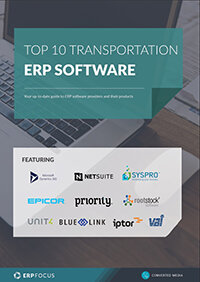ERP Inventory Management: 4 Benefits for Distributors
Distributors are classic middle men. Historically they have taken large shipments from manufacturers and held inventory until they could be resold to retailers in smaller quantities. That role continues and today’s distributors also deliver just in time to their customers, manage the customer’s inventories, plan the manufacturer’s delivery schedule, and many other service roles all on a razor-thin margin. ERP systems help manage inventory up and down the supply chain and enable profitability and provide the competitive edge needed to survive. Without ERP inventory management, they might be just another distributor.
Sales Performance
A sale happens when the distributor has exactly what a customer wants in their inventory at just the right time. A shortage on even one line can mean an entire sale is lost. At the same time, an overage can become spoiled or surplus and quickly have no value. ERP inventory management can track data on past sales and inventory levels which can be combined with sales forecasts from customers to help optimize the right inventory level.
Real-Time Data
ERP inventory modules can help enable the controls that lead to accurate knowledge of inventory for every SKU. When a customer asks for availability, the ERP provides in real time exactly what is on hand and when the next incoming delivery is expected and nets that quantity against existing customer orders. Delivering on promises leads to satisfied customers.
Compliance Reporting
Beyond the basics, distributors of food, drugs, and chemicals are examples of businesses that need to satisfy regulatory requirements and ERP inventory management can offer these tools as well. Lot numbers combined with SKUs link every incoming receipt to the outgoing delivery that received that lot. Storage conditions and formulations are tracked and recorded for any necessary reporting and to ensure the quality of the product remains at high levels.
External Inventory
In addition to their own inventory, distributors store and manage inventory owned by suppliers on a consignment basis and other inventory owned by customers. ERP inventory management can help control what is owned by whom and any reporting required by the different owners. At the same time, ERP helps assemble specific orders combining consigned inventory with the distributor’s inventory with the right markup on each kind of inventory.
Like any business, distributors need to stay ahead of their competition. ERP business intelligence and analytics along with advanced reporting provides the edge needed for modern distributors. The old timer could keep the whole business in his head. Today business moves too fast and ERP inventory management is necessary for success.
Free white paper

Top 10 Manufacturing ERP Software Comparison
Compare the best manufacturing ERP systems

Featured white papers
-

Top 10 Distribution Software Comparison
Compare the best distribution ERP systems available today
Download -

Top 10 Transportation ERP Software Comparison
Get your free comparison of the top 10 transportation ERPs
Download -

7 steps to selecting distribution ERP
Get expert advice on distribution ERP selection and requirements analysis
Download
Related articles
-

Distribution ERP vs WMS: which suits your needs better?
Distribution ERP vs WMS: be clear on the differences with this guide
-

Secret KPI: Why Your ERP Implementation Team Matters More Than Software
Learn how Godlan ensures successful ERP implementation for manufacturers with proven strategies &...
-

ERP for Food Distributors: Key Functionality
In a modern world where products are tailored to consumers, why should ERP for food distributors ...

